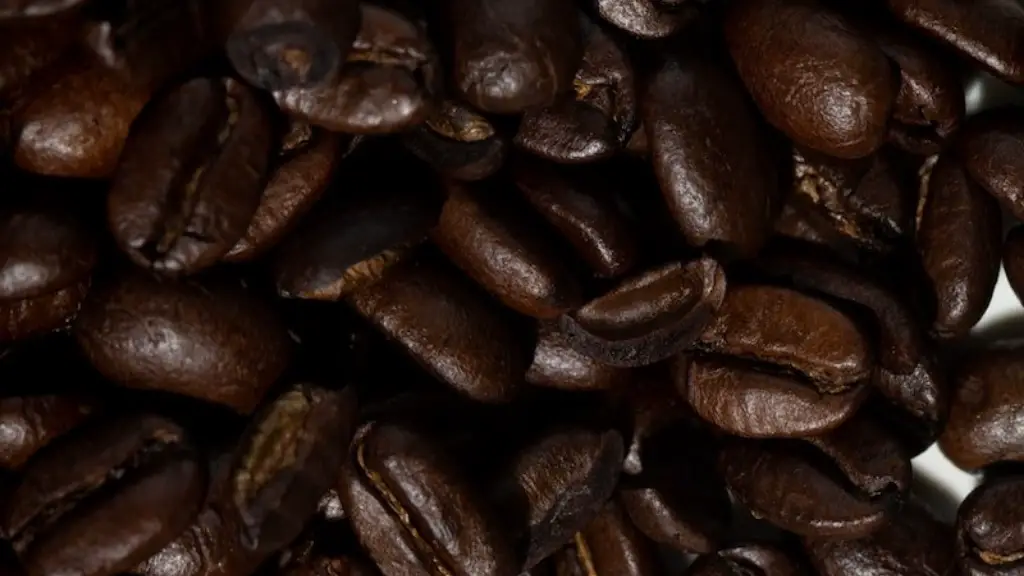Many people have recently become intrigued by intermittent fasting (IF) and bulletproof coffee, leading to the question: can I drink bulletproof coffee while intermittent fasting?
Intermittent fasting involves structured cycles of eating and fasting within a certain period of time. Generally, a person would eat within a specific window of time, such as 8 hours a day, and fast for the other 16 hours. Bulletproof coffee is a type of coffee that contains grass-fed butter, which provides healthy fats and essential nutrients.
Experts say that the combination of intermittent fasting and bulletproof coffee can be beneficial in many ways. Nutritionist Dr. Josh Axe said that the combination of the two can help to keep your energy levels up and stabilize your blood sugar. It can also help you burn more fat, reduce inflammation, and improve cognitive function.
However, it is important to remember that intermittent fasting and bulletproof coffee are not intended to be used as a weight loss tool. You should still focus on eating a balanced diet of whole foods and avoiding processed ones. Also, it is important to make sure you are getting enough antioxidants, vitamins, and minerals from your diet, as these are essential for optimal health.
Another important thing to keep in mind when it comes to intermittent fasting and bulletproof coffee is that they should not be used as an excuse to eat unhealthy foods. While it is okay to have the occasional treat, it should not be a regular part of your routine. It is also important to stay hydrated while fasting, as this can help to keep your energy levels up and reduce hunger pangs.
It is also important to be mindful of the types of fats that you are consuming. Opt for healthy fats, such as coconut oil, grass-fed butter, and olive oil, as these are much healthier than processed fats. Additionally, make sure to get adequate amounts of protein, as this will help to keep you feeling full for longer.
In conclusion, intermittent fasting and bulletproof coffee can be beneficial for many people, but it is important to be aware of the potential risks and make sure to take the necessary precautions. Talk to your healthcare provider before making any major changes to your diet, and they can help you determine the best approach for your individual needs.
List of Benefits
Interimttent fasting and bulletproof coffee offer several unique benefits, and it important to understand what these are. The list of potential benefits includes:
- Improve cognitive function
- Reduce inflammation
- Help to burn more fat
- Promote a healthy body composition
- Stabilize blood sugar
These benefits can all be achieved if the right strategy is followed and if adequate precautions are taken. It is important to make sure you are monitoring your blood sugar and not overindulging when it comes to unhealthy treats.
Protein Intake
Intermittent fasting and bulletproof coffee are both beneficial strategies to incorporate into a healthy lifestyle, but they are not intended to be used as a weight loss tool. It is important to make sure that you are still getting enough protein in your diet, as this will help to keep your body energised and promote a healthy body weight.
However, it is essential to note that your use of protein can easily increase to the point where your calories exceed what is recommended for your height and body type. As such, it is important to track your protein intake and make sure that it is within a healthy range.
Eating protein-rich foods such as legumes, nuts, poultry and fish can help to keep you feeling full for longer and provide essential nutrients for your body. It is also essential to get the right balance of fats, carbs, and proteins. Aim to have a ratio of 40% carbs, 30% fat, and 30% protein to ensure that your body is receiving the right amount of nutrients.
Healthy Fats
Intermittent fasting and bulletproof coffee can help to promote a healthy body composition, but it is important to make sure that the fats you are ingesting are healthy. Choose healthy fats such as coconut oil, grass-fed butter, and olive oil, as these are much healthier than processed ones. Also, make sure to avoid trans fats such as margarine or shortening, as these can increase your risk of heart disease.
Additionally, it is essential to monitor your fat intake and make sure that it is not too high. Eating too much fat can lead to an increase in calories, which can cause weight gain. A good rule of thumb is to have no more than 30% of your daily calories coming from fat.
Moreover, it is important to be mindful of the types of fats you are eating. Aim to consume more unsaturated fats, such as omega-3 fatty acids, as these can help to reduce inflammation and promote a healthy heart. Additionally, consuming monounsaturated fats, such as olive oil, can help to improve your cholesterol levels and reduce the risk of heart disease.
Timing
In addition to being mindful of the type of fats you are ingesting, it is also important to consider the timing of your meals. Try not to eat too late at night, as this can interfere with your sleep patterns and reduce the amount of time your body has to digest your food. Eating close to your regular bedtime can also increase the risk of indigestion and acid reflux.
Also, it is important to spread out your meals across the day, as this can help to regulate your blood sugar levels and improve your energy levels. Eating multiple, smaller meals throughout the day can also help to keep your hunger levels under control, which can reduce the temptation to overeat.
Additionally, it can be beneficial to time your meals around your workout routine. Studies have shown that having a meal or snack before and after your workout can help to improve your performance. Pre-workout meals should contain easily digestible carbs and proteins, while post-workout meals should focus on replenishing your body’s energy stores.
Salt Intake
It is essential to pay attention to your salt intake when it comes to intermittent fasting and bulletproof coffee. Too much salt can lead to cardivascular issues and increase your risk of developing high blood pressure.
Consuming processed and fast foods is one of the leading causes of excessive salt intake, so it is important to limit your consumption of these. When cooking meals at home, opt for fresh ingredients and ingredients that are low in sodium. Also, try to limit your intake of added salt when cooking, as this can quickly add up.
Moreover, it is important to watch out for hidden sources of salt, such as canned soups and sauces. These can contain surprisingly high levels of sodium, so it is essential to check the label before purchasing.
Finally, it is also important to monitor your use of condiments. Opt for ones that are low in sodium, such as low-sodium soy sauce, and use these sparingly.





